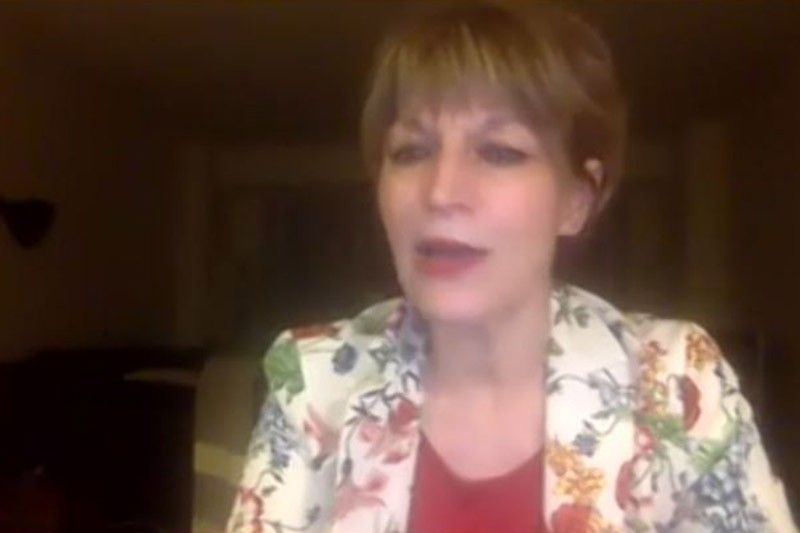Callamard hopeful ICC will seek investigation into 'drug war' killings

MANILA, Philippines — A United Nations expert on extrajudicial executions is pinning her hopes on the International Criminal Court, which is finalizing its decision on opening a formal investigation into the alleged crimes against humanity linked with the “war on drugs.”
“I am placing now a lot of hope in the ICC,” Agnes Callamard, the UN special rapporteur on extrajudicial, summary and arbitrary killings, said in a forum organized by the Foreign Correspondents Association of the Philippines Friday.
“Hopefully, they will determine that the only option left as part of the ICC mandate is to undertake a formal investigation.”
Callamard said the preliminary examination into the alleged extrajudicial killings in the government’s anti-drug crackdown should proceed to the next stage if the ICC prosecutor will act on the “basis of principles only rather than tactical consideration.”
A preliminary examination determines if an alleged crime falls with The Hague-based tribunal’s jurisdiction and if a full-blown investigation is needed.
In a report last December, ICC Prosecutor Fatou Bensouda said there is “reasonable basis to believe” that crimes against humanity were committed in the government’s anti-narcotics campaign.
Bensouda said her office’s decision on whether it would seek authorization to open a formal investigation will be out in the first half of this year.
The ICC, set up in 2020 to bring justice to victims of the world’s worst crimes, is a “court of last resort” and gets involved only if member countries are unwilling or unable to prosecute offenders.
Non-cooperation
Callamard said the ICC must learn to operate in the context of countries that will not cooperate with its actions.
“I am hopeful. I want to believe the ICC will do the right thing and I want to believe the ICC is prepared to work in difficult circumstances outside, in and with the country that refuses to cooperate with them because they have to learn to do that,” Callamard said.
Presidential spokesperson Harry Roque, a human rights lawyer years ago, previously said that the ICC can do whatever it wants but the Philippine government does not recognize the court’s jurisdiction and will not cooperate with its actions.
The Philippines formally withdrew from the ICC in March 2019, a year after Bensouda initiated a preliminary examination. The government insisted that courts in the country are functioning well.
Despite this, the ICC continues to assess alleged crimes that happened prior to the withdrawal.
‘Soft, ridiculous’ resolution
The UN human rights expert said the resolution of the United Nations Human Rights Council that offered the Philippines technical assistance and capacity building left her “mortified, angry and revolted.”
Human rights advocates deemed the resolution “weak” as it fell short of their call for an independent and on-the-ground probe into the human rights situation in the Philippines.
“Why did the UNHRC go for that very soft, ridiculous resolution?” she said.
Callamard said the independent probe into killings related to the “drug war” and the attacks against activists launched by civil society organizations abroad will help.
Investigate PH aims to submit its reports and findings to the UNHRC, other relevant UN bodies and the ICC.
- Latest
- Trending































